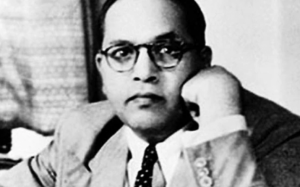
During a recent discussion, I referred to impermanence as a gift. To paraphrase, I said that impermanence was the gift that you received that you did not really want. You aren’t sure that it is a good or useful gift, but then you find yourself using it all the time. It’s not extravagant or glamorous, but it is reliable. When you use it regularly and correctly, you will benefit immensely.
Impermanence by itself is incomplete. It is like receiving a toy or other gadget without the batteries. What is missing? Clinging and aversion. Now, I am picturing your face. There you are, opening up the first box or gift bag, and, to your confusion, out comes impermanence.
“What I am I supposed to do with this?” you exclaim. But there is still another gift to be unwrapped. And so, with optimism, you open it up. Now you can hardly contain your confusion as out comes attachment—in two forms, clinging and aversion.
Congratulations! You have been given a full set of . . . a full set of . . . wait, is there even an instruction booklet or a user guide or something?
Yes, there are instructions. To use these gifts for your full benefit, you need to proceed with awareness. Luckily you have the Four Noble Truths and the Noble Eightfold Path. The Four Noble Truths remind you that there is dissatisfaction. And that you control your own level of stress or dissatisfaction through clinging and aversion. This is not a statement of blame; this is simply an observation of what it means to be human. When you can accept this truth, you will find it easier to navigate impermanence. As you follow the Noble Eightfold Path, you will develop your own deeper understanding of dissatisfaction, and how you can ease your own stress or suffering.
Whatever stress, in arising, arose for me in the past, all of it had desire as its root, had desire as its cause — for desire is the cause of stress. And whatever stress, in arising, will arise for me in the future, all of it will have desire as the root, will have desire as its cause — for desire is the cause of stress.
(SN 42.11)
This is the observation of Gandhabhaka the headman. He reaches this understanding after the Buddha walks him through some of the finer points of impermanence and attachment and stress. The primary message in this teaching is about attachment. And this attachment becomes clear when Gandhabhaka is faced with the impermanence of others.
The Blessed One said: “Now what do you think, headman: Are there any people in Uruvelakappa who, if they were murdered or imprisoned or fined or censured, would cause sorrow, lamentation, pain, distress, or despair to arise in you?”
“Yes, lord, there are people in Uruvelakappa who, if they were murdered or imprisoned or fined or censured, would cause sorrow, lamentation, pain, distress, or despair to arise in me.”
“And are there any people in Uruvelakappa who, if they were murdered or imprisoned or fined or censured, would cause no sorrow, lamentation, pain, distress, or despair to arise in you?”
“Yes, lord, there are people in Uruvelakappa who, if they were murdered or imprisoned or fined or censured, would cause no sorrow, lamentation, pain, distress, or despair to arise in me.”
(SN 42.11)

Every instance of the death or misfortune of others does not hold the same level of stress for Gandhabhaka. This teaching does not give us any reason to believe that he actively wishes for the death or misfortune of anyone. Just that there are some people whose demise would be more painful for him. With the arising of compassion and equanimity, his experience would be different. But this is not the purpose of the teaching. On this occasion, Gandhabhaka has specifically asked the Buddha to teach him the origin and ending of stress. And to make sure that Gandhabhaka is understanding the lesson, the Buddha continues:
“Now what is the cause, what is the reason, why the murder, imprisonment, fining, or censure of some of the people in Uruvelakappa would cause you sorrow, lamentation, pain, distress, or despair, whereas the murder imprisonment, fining, or censure of others would cause you no sorrow, lamentation, pain, distress, or despair?”
“Those people in Uruvelakappa whose murder, imprisonment, fining, or censure would cause me sorrow, lamentation, pain, distress, or despair are those for whom I feel desire & passion. Those people in Uruvelakappa whose murder, imprisonment, fining, or censure would cause me no sorrow, lamentation, pain, distress, or despair are those for whom I feel no desire or passion.”
(SN 42.11)
The difference is the depth of Gandhabhaka’s feelings. To make this even more clear, the Buddha asks how Gandhabhaka would feel if his son were to experience death or misfortune. The Buddha also asks how Gandhabhaka would feel if his wife experienced death or misfortune. And in both cases Gandhabhaka acknowledges that he would be devastated.
In contemplating his loved ones experiencing misfortune, or in considering their deaths, Gandhabhaka gains an understanding of the cause of stress. And that understanding is gleaned from the skillful teachings he received. Teachings that used impermanence and clinging and aversion.
See more
Margaret Meloni: Death Dhamma
The Death Dhamma Podcast (Margaret Meloni)
Related features from BDG
Nobody Gets Out of This Alive
Impermanence Is in Sight
The Promise of Impermanence
Related videos from BDG
The Death Dhamma Podcast Season 1
The Death Dhamma Podcast Season 2












